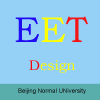-
Distance education
普通类 -
- 支持
- 批判
- 提问
- 解释
- 补充
- 删除
-
-
Distance Education
DISTANCE EDUCATION IS HERE! With programs expanding throughout the nation and abroad, educators and students need to be more aware of its history and its positive and negative aspects.
-
We have come a long way
Distance education originally took the form of correspondence courses through the mail. Students' correspondence and contact with teachers was both limiting and time consuming. As we move into the computer age, the web has been an unbelievable advancement. A timeline of the history of distance education is provided below.
.jpg)
-
Distance learning-- The possibilities are endless.......
A common misconception of distance learning is the scenario of a lonely guy sitting at his computer. However, distance learning does not have to be isolating. It can also be highly interactive. Many argue that communities that exist in the classroom can also develop online (Dede, 1996). Instructors are strongly encouraged to develop strategies that lead to discussion and group projects. It allows us the possibility of connecting with people from all over the world!!!
.jpg)
Here is a list of things to keep in mind when developing a Distance Ed. program
- Access to data does not automatically expand student's knowledge; the availability of information does not intrinsically create a framework of ideas (Dede, 1996)
- It's a good idea to try to develop some good group cohesion from the beginning. Assign group projects
- Provide a variety of activities such as debates, polling, reflection, and critique (Bates, 1995)
- Understand the technology's strengths and weaknesses
- Provide technical training
- Plan for technical failures
-
Toward A Theoretical Framework
A theoretical framework of Distance Ed has been hard to come by. There is no national policy toward distance education. Two or three strategies exist but need to be developed further. Many professionals foresee a roadblock to the progress and call for an unclouded vision of Distance Ed. This would include setting, method, and audience.
Theories - A brief look at distance education theory
Transactional Distance
Distance is not determined geographically, but by the variety of transactions that occur between the leaner and teacher. This continuum challenges the idea of traditional versus distance education. Saba and Shearer (1994), conclude that as dialogue increase, transactional distance decreases. It is not location that determines the effect of instruction, rather the interaction between student and instructor
Interaction theory
Moore (1989) discusses three relationships, which are essential in distance education.- Learner -instructor (dialogue between the student & Teacher)
- Learner- content (How students obtain intellectual info from the text)
- Learner-learner ( Exchange of ideas between the students)
Social context
Discusses the social context where the learning takes place. How the environment effects motivation, attitudes, teaching, and learning (McIsaac, 1993)
Control (Locus of control)
This theory relates to the idea of how the student views his role in learning. The idea that the student has an internal locus of control or an internal locus. Does the student feel that his/her academic success is based on his own personal accomplishments or that their success is related to outside forces or fate.-
References & Links
Bates, A.W. Technology, Open Learning and Distance Education. London:Routledge, 1995.
Dede, C." Emerging Technologies in Distance Education for Business." Journal of Education for Business 71, no.4 (March-April 1996): 197-204
McIsaac, M.S. & Gunawardena, N.C. (1996) Distance Education. In David H. Jonassen (Ed.) Handbook of research for educational communications and technology. New York: Macmillan.
Saba, F. & Shearer, P.(1994) Distance in Education: In David H. Jonassen (Ed.) Handbook of research for educational communications and technology. New York: Macmillan. In David-
More Information-Look at these web sites
U of Idaho discussion of distance learning
Distance learning Week-
Author
Gary Rossen, MA
-
-
- 标签:
- 1996
- education
- distance
- student
- idea
- education.
- learning
- ed.
-
加入的知识群:



学习元评论 (0条)
聪明如你,不妨在这 发表你的看法与心得 ~